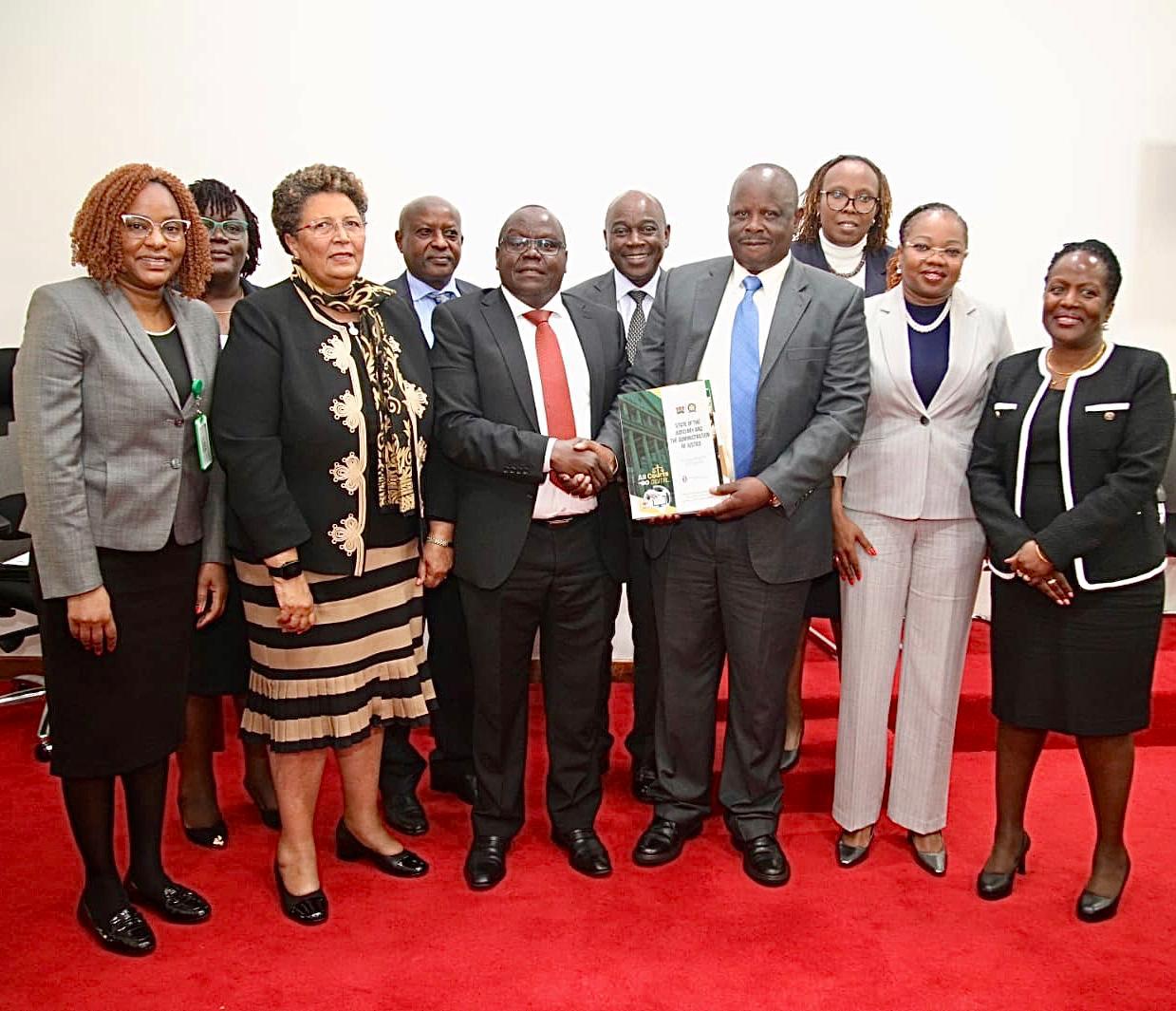
MPs push for faster, fairer courts in Kenya
A courtroom should be a place of answers, not an endless wait. But for many Kenyans, accessing justice remains a long, expensive, and emotionally draining journey. This was during a meeting between the Judicial Service Commission (JSC) and the Constitutional Implementation Oversight Committee (CIOC) over the extent of the JSC’s discharge of their Constitutional mandate.
“How is it that the earliest judgment one can expect takes four or five years?” posed Hon. Geoffrey Mulanya. “Kenyans are losing faith. Quick access to justice isn’t a luxury, it’s a constitutional right.”
For many Members of Parliament, the frustrations voiced weren’t theoretical, they echoed the lived experiences of their constituents.
“Why should someone travel hundreds of kilometers just to be heard?” questioned Hon. Charles Nguna. “We should have a functioning court in every constituency. Justice must be brought closer to the people.”
Lady Justice Fatuma Sichale, representing the JSC, laid bare the staggering challenges within the judicial system.
“We’re sitting on a backlog of 257,000 cases,” she revealed. “With only nine Court of Appeal benches hearing all appeals in the country, the average lifespan of an appeal is about five years. We’re working on establishing 15 more benches, but the elephant in the room is funding.”
In partnership with Members of Parliament, the JSC has rolled out prototype courts, 14 built so far, thanks to constituency-level collaboration.
“Every sub-county needs a court. We’re embracing partnerships to make that happen,” added Judge Sichale. “But to function, these courts need more personnel and equipment. The budget allocation, less than 1pc of the national budget, is simply not enough.”
“Intentional delays, questionable transfers of cases, and a lack of transparency fuel the perception that justice is compromised,” said Hon. Caroli Omondi. “We need a clear case management policy, judicial performance statistics, and greater accountability. This isn’t just about courts, it’s about the trust of the Kenyan people.”
Hon. Mulanya went further, questioning patterns of collusion that seem to curtail freedoms.
“Why should a case be filed in Kisumu when the complainant lives in Nairobi? Kenyans are frustrated. Succession matters remain inaccessible. We need a policy, urgently.”
Also weighing in was the Chief Registrar, who painted a sobering picture of systemic limitations.
“The JSC can only recommend the removal of a judge. We can’t issue sanctions or address minor infractions. Even proposed legislation from JSC remains pending,” she said. “There’s also a friction in appointments due to tensions between arms of government.”
Despite the stark realities, what emerged was a shared recognition: the justice system must be reformed to serve every Kenyan, rich or poor, near or far, swiftly and fairly.
As Hon. Caroli aptly said, “Justice that takes years is justice denied. Let’s fix the system, not just patch it.”
